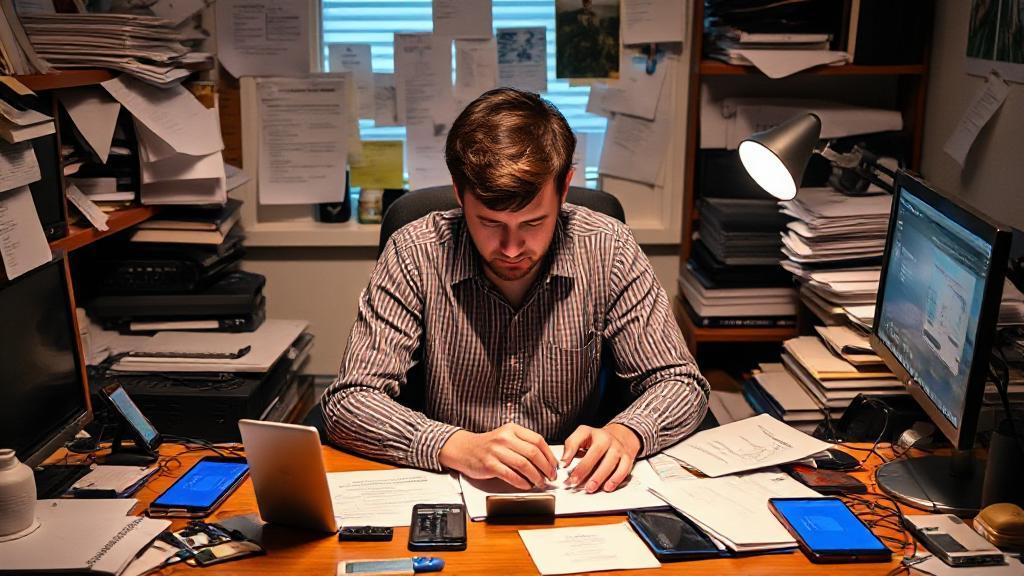In our always-on, hyper-connected world, maintaining focus has become one of the most sought-after skills. With constant notifications, digital temptations, and our own wandering thoughts, staying on task can feel like a daily battle. Yet, cultivating deep concentration is not only possible—it’s essential for productivity, creativity, and mental well-being.
The Nature of Distraction
Distractions come in many forms, but they generally fall into two categories:
- External distractions: These include notifications, noisy environments, interruptions from others, and digital alerts.
- Internal distractions: These stem from within—wandering thoughts, stress, anxiety, hunger, or fatigue.
Our brains are naturally wired to notice novelty, a trait that once helped us survive but now often leads us astray when we need to focus. Recognizing the type of distraction you’re facing is the first step toward regaining control.
The Cost of Losing Focus
Research shows that the average person checks their phone nearly 100 times per day. Each interruption leaves behind “attention residue,” making it harder to return to the original task. In fact, a University of California, Irvine study found it takes over 23 minutes to regain focus after being interrupted. This constant switching can lead to:
- Decreased productivity
- Increased stress and burnout
- Impaired learning and decision-making
Building Your Focus Fortress
1. Create a Focus-Friendly Environment
Your physical and digital spaces play a critical role in your ability to concentrate:
- Declutter your workspace: Physical clutter leads to mental clutter.
- Manage noise: Use noise-canceling headphones or listen to focus music.
- Control your digital environment: Keep only necessary tabs and applications open. Tools like Freedom or StayFocusd can block distracting sites.
"Your environment doesn't just reflect your focus habits—it creates them." — James Clear, Atomic Habits
2. Set Clear Goals and Prioritize
Start each day by outlining your top priorities. The SMART goals framework helps make objectives Specific, Measurable, Achievable, Relevant, and Time-bound. Use the Eisenhower Matrix to distinguish between urgent and important tasks, and consider a “brain dump” list to quickly jot down distracting thoughts for later.
3. Implement Strategic Time Management
The Pomodoro Technique
This popular method involves:
- Working in focused 25-minute intervals (“Pomodoros”)
- Taking 5-minute breaks between intervals
- After four Pomodoros, taking a longer break (15-30 minutes)
You can use Pomofocus or Tomato Timer to help you stay on track. Research shows this approach reduces mental fatigue and maintains engagement.
Time Blocking
Allocate specific blocks of time for different types of work:
4. Tame Technology
- Silence notifications: Use iOS Focus Modes, Android Digital Wellbeing, or Windows Focus Assist.
- Use focus apps: Freedom, Forest, or Cold Turkey Blocker.
- Implement the “one-screen rule”: Work with only one screen when possible.
- Schedule “tech checks”: Allocate specific times to check emails and messages.
5. Communicate Boundaries
Let others know when you need uninterrupted time. Use a “do not disturb” sign or simply communicate your focus needs to colleagues or family.
Strengthening Your Mental Focus Muscle
Mindfulness and Meditation
Regular mindfulness practice can significantly improve attention span. Even 5-10 minutes of daily meditation, using apps like Headspace or Calm, can help you become more aware of distractions and gently bring your focus back.
Single-Tasking
Multitasking is a myth. When you try to juggle multiple tasks, you’re actually switching rapidly between them, which:
- Reduces productivity by up to 40%
- Increases errors
- Creates mental fatigue
Practice doing one thing at a time, completely and with full attention.
The 5-Second Rule
When you notice your mind wandering:
- Acknowledge the distraction.
- Count backward: 5-4-3-2-1.
- Deliberately return to your task.
This technique, popularized by Mel Robbins, helps short-circuit distraction patterns.
Take Care of Your Body
Physical well-being directly impacts your ability to concentrate:
- Get enough sleep: Aim for 7-9 hours per night.
- Exercise regularly: Physical activity boosts cognitive function.
- Stay hydrated and eat balanced meals: Dehydration and hunger can impair focus.
When Distractions Persist
If you’re still struggling despite these strategies, consider deeper issues:
If distractions are severely impacting your work or well-being, professional support may be helpful.
The Deeper Benefits of Focused Work
Developing strong focus habits delivers benefits beyond productivity:
- Flow states: More frequent experiences of enjoyable, immersive concentration
- Reduced stress: Less mental fragmentation means less cognitive load
- Higher quality output: Depth produces insights that scattered attention cannot
- Greater satisfaction: Completing meaningful work without constant interruption
Remember, focus isn’t about being productive every minute—it’s about being fully present for what matters most. Sometimes, the best way to reset your mind is to intentionally do nothing. For tips on how to make the most of downtime, see How to make the most of doing nothing for relaxation and mental health.
Useful Tools and Resources
For more on productivity and focus, check out Getting Things Done and Deep Work by Cal Newport.
Staying focused in a world full of distractions is a skill that takes time and practice to develop. By understanding your distractions, setting clear goals, and using proven techniques, you can reclaim your attention and boost your productivity. Consistency, not perfection, is the key—be kind to yourself, and keep moving forward.
